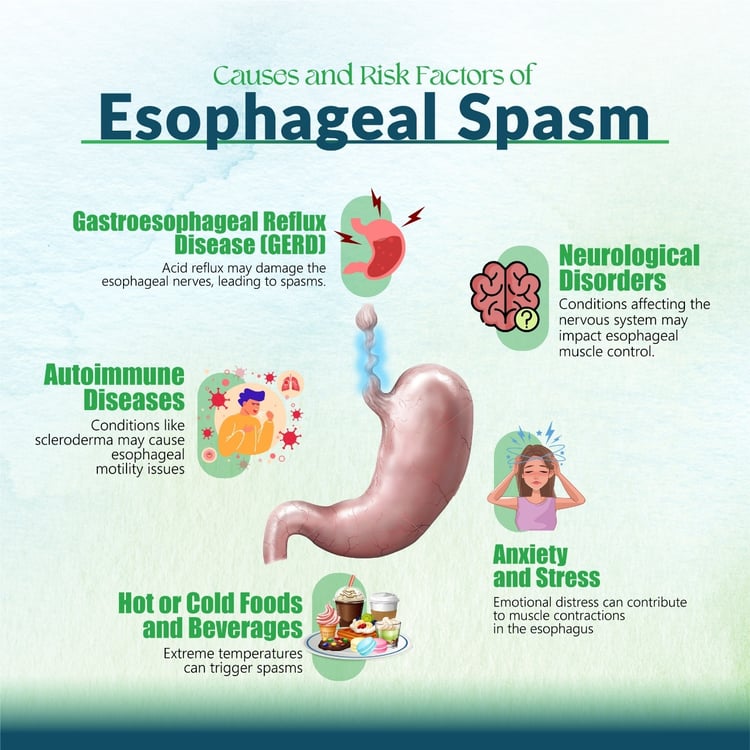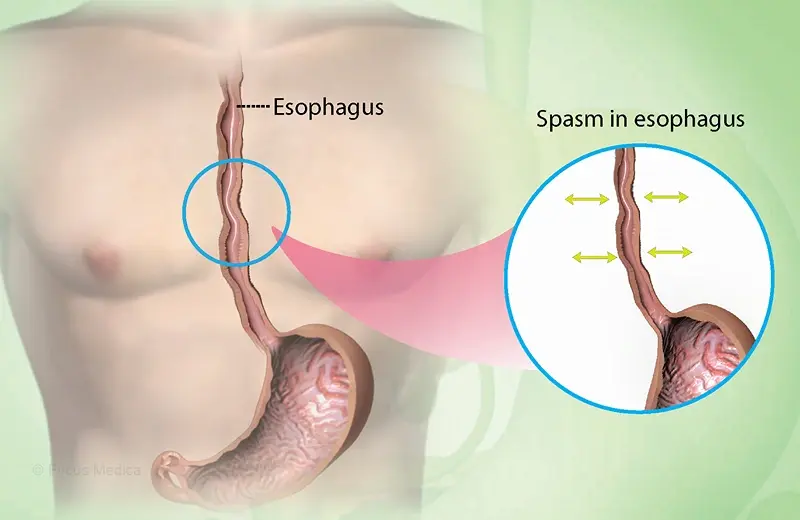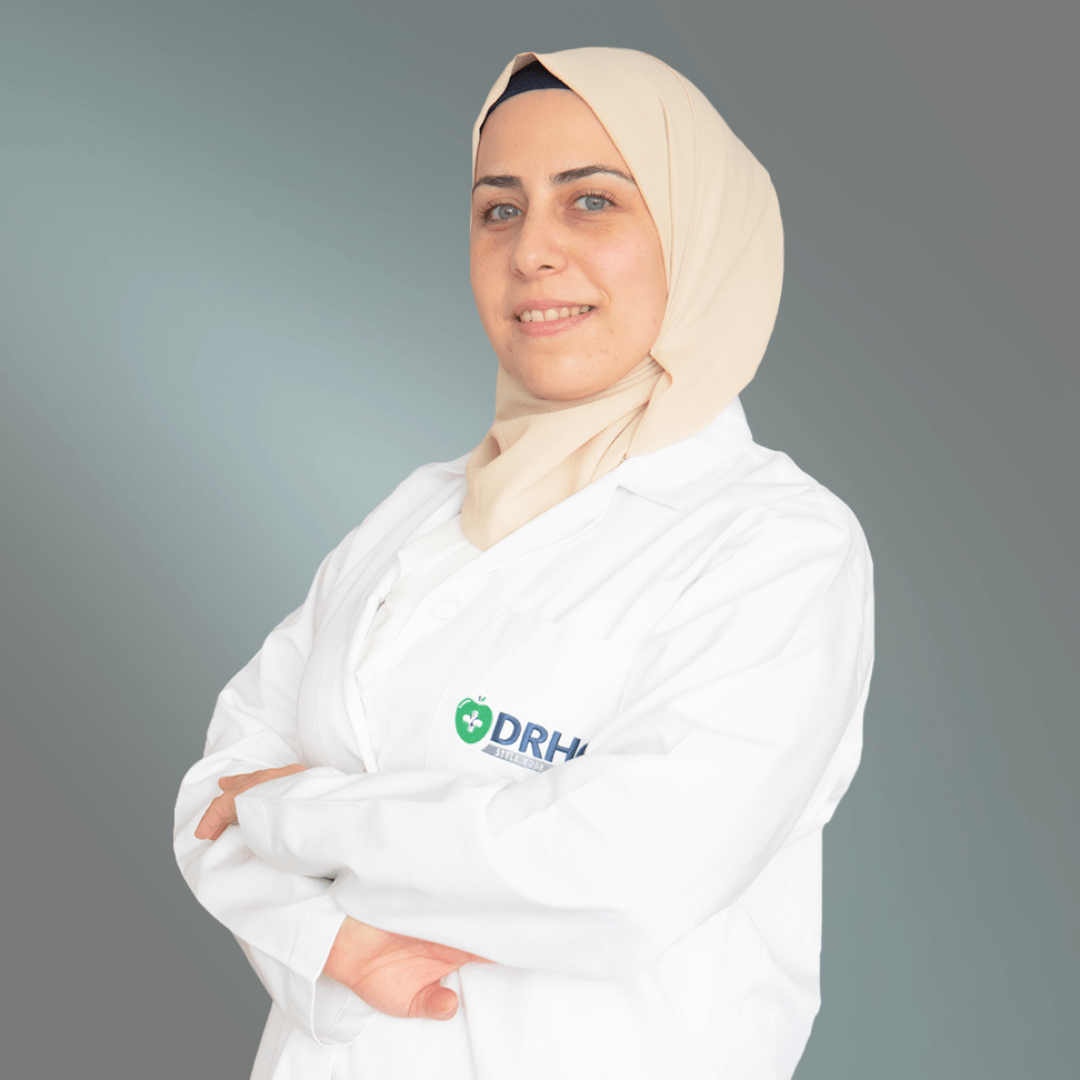Esophageal Spasm at DRHC Dubai Gastroenterology Clinic
What is Esophageal Spasm?
Esophageal spasm is a condition characterized by abnormal, uncoordinated, or excessive contractions of the esophagus, the muscular tube that connects the throat to the stomach. These spasms can cause difficulty swallowing, chest pain, and regurgitation, often mimicking heart-related conditions.
Types of Esophageal Spasms
There are two main types of esophageal spasms:
- Diffuse Esophageal Spasms (DES): Uncoordinated contractions that disrupt the normal swallowing process.
- Nutcracker Esophagus (Jackhammer Esophagus): Extremely powerful contractions that can be painful and make swallowing difficult.
Causes and Risk Factors
The exact cause of esophageal spasms is not always clear, but some contributing factors include:
- Gastroesophageal Reflux Disease (GERD): Acid reflux may damage the esophageal nerves, leading to spasms.
- Neurological Disorders: Conditions affecting the nervous system may impact esophageal muscle control.
- Anxiety and Stress: Emotional distress can contribute to muscle contractions in the esophagus.
- Hot or Cold Foods and Beverages: Extreme temperatures can trigger spasms.
- Autoimmune Diseases: Conditions like scleroderma may cause esophageal motility issues.

Symptoms of Esophageal Spasms
Patients with esophageal spasms may experience:
- Difficulty swallowing (dysphagia)
- Sudden, severe chest pain, often mistaken for a heart attack
- Regurgitation of food or liquids
- A sensation of food being stuck in the throat or chest
- Heartburn or acid reflux
Diagnosis of Esophageal Spasms
To accurately diagnose esophageal spasms, the following tests may be performed:
- Esophageal Manometry: Measures muscle contractions and pressure in the esophagus.
- Barium Swallow Test: A special X-ray to assess the swallowing process.
- Upper Endoscopy (EGD): Visual examination of the esophagus for abnormalities.
- pH Monitoring: Evaluates acid reflux and its impact on esophageal function.
Treatment Options for Esophageal Spasms
Treatment depends on the severity and frequency of symptoms and may include:
1. Medications
- Calcium Channel Blockers & Nitrates: Help relax esophageal muscles.
- Proton Pump Inhibitors (PPIs): Reduce acid reflux-related irritation.
- Botulinum Toxin (Botox) Injections: Used to relax the esophageal muscles.
- Antidepressants: Low doses can help regulate nerve control of esophageal contractions.
2. Lifestyle and Dietary Modifications:
- Eat slowly and chew food thoroughly.
- Avoid triggers like very hot or cold foods.
- Reduce caffeine, alcohol, and spicy foods.
- Stay upright after meals to prevent acid reflux.
3. Minimally Invasive and Surgical Treatments
- Pneumatic Dilation: A balloon is inserted and inflated to stretch the esophagus.
- Peroral Endoscopic Myotomy (POEM): A minimally invasive procedure to cut tight esophageal muscles.
- Heller Myotomy: A surgical option for severe cases to relieve muscle tightness.
Why Choose DRHC Dubai for Esophageal Spasm Treatment?
At DRHC Dubai, we offer:
- Expert gastroenterologists specializing in esophageal disorders.
- Advanced diagnostic techniques for precise assessment.
- Minimally invasive and surgical options for effective symptom relief.
- Personalized treatment plans to address individual patient needs.
.png?width=281&height=59&name=bookanappointment%20(1).png)
Dubai Gastroenterology Clinic—Dr. Rami Hamed Center now provides the leading gastroenterologist in Dubai for Gastric balloons, Colonoscopies, Colon Cancer Screening, and more. DRHC offers highly qualified liver specialist doctors in Dubai. Call +97142798200 to Book your Appointment Today at DRHC Dubai.





.png?width=281&height=59&name=bookanappointment%20(1).png)




